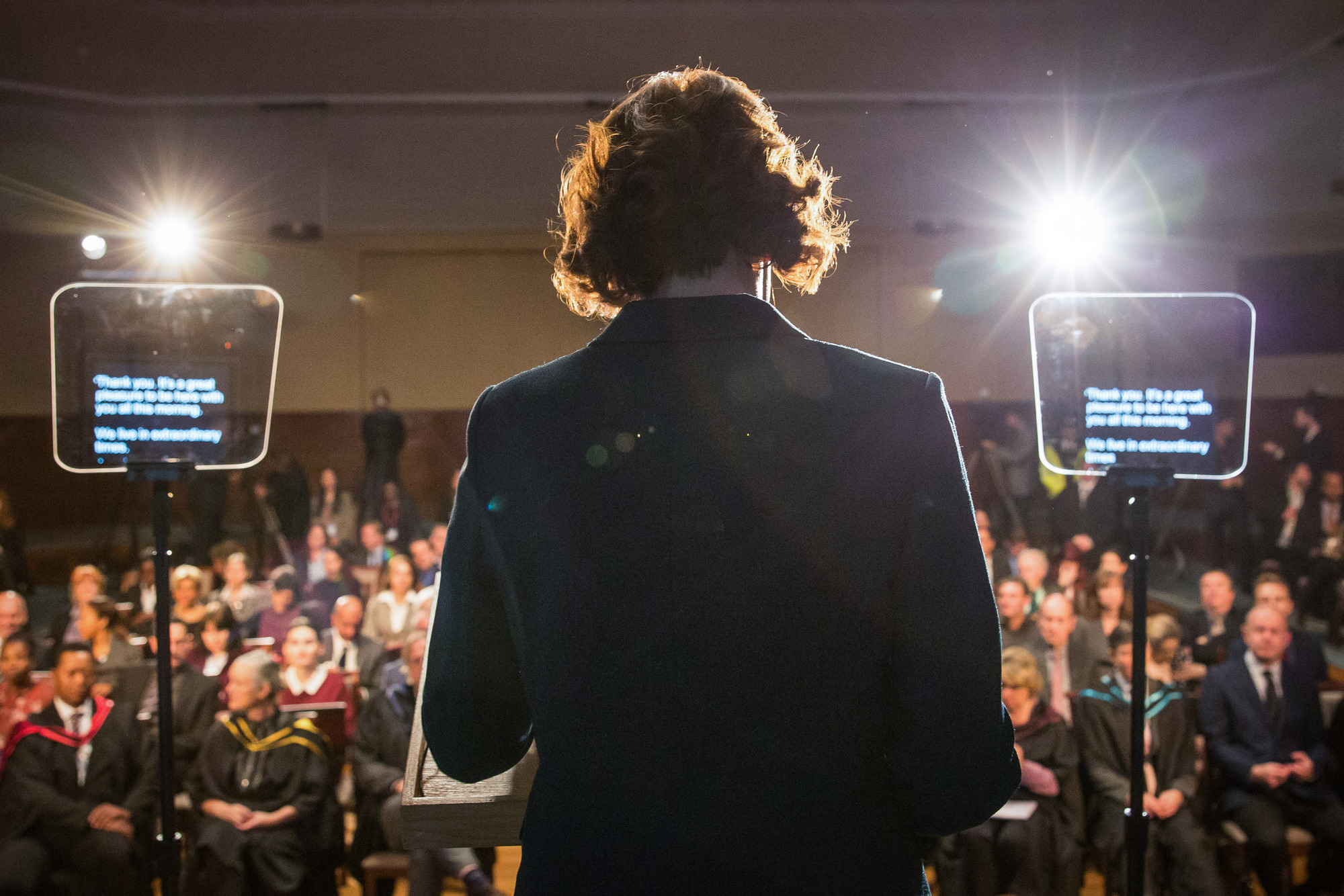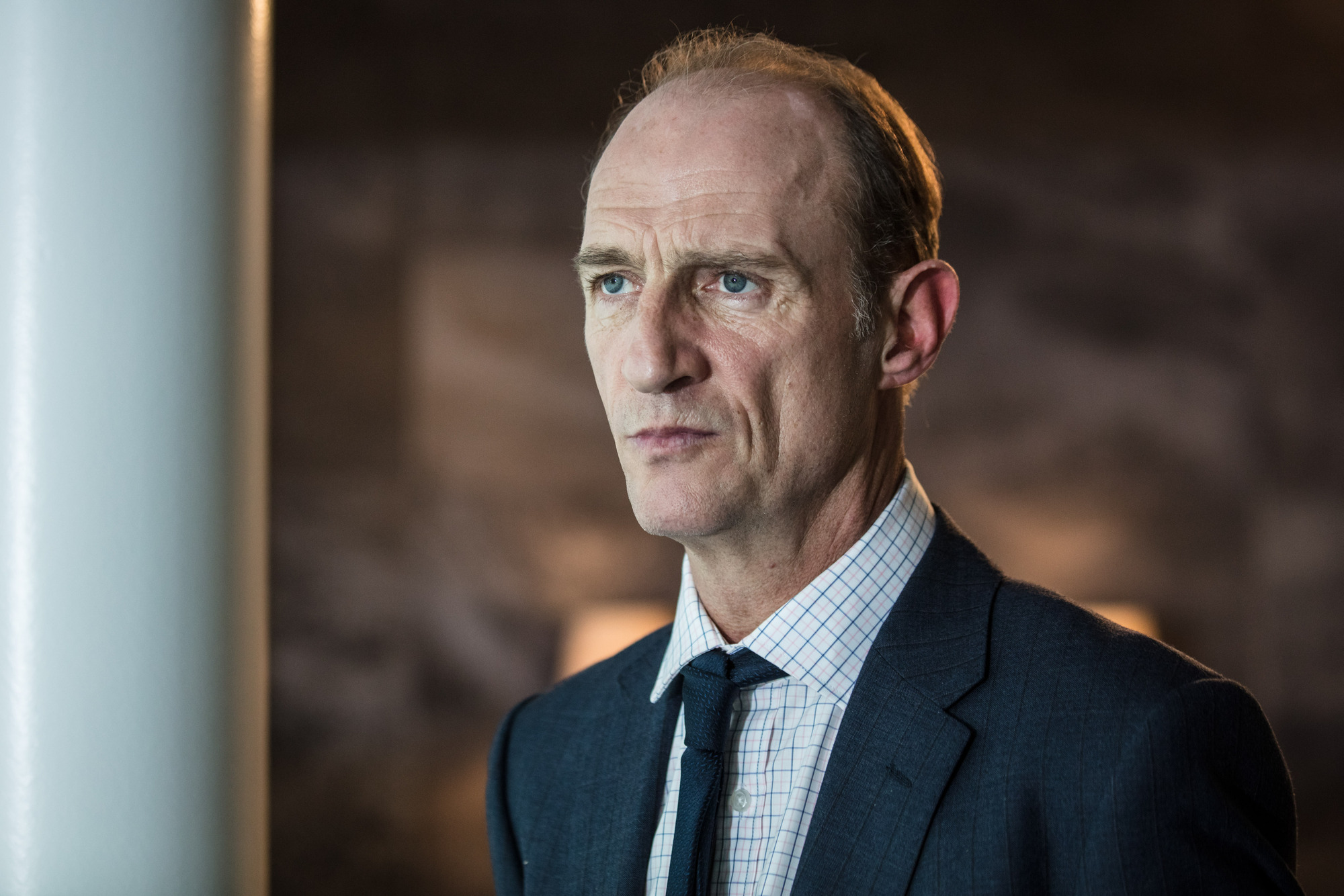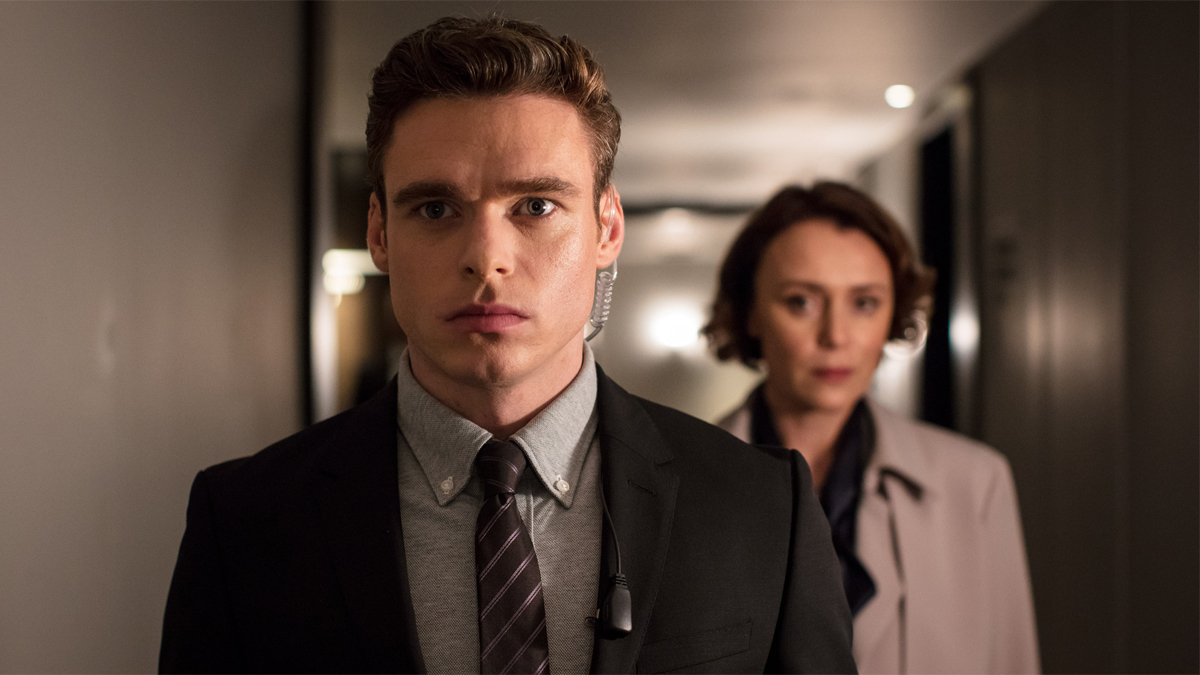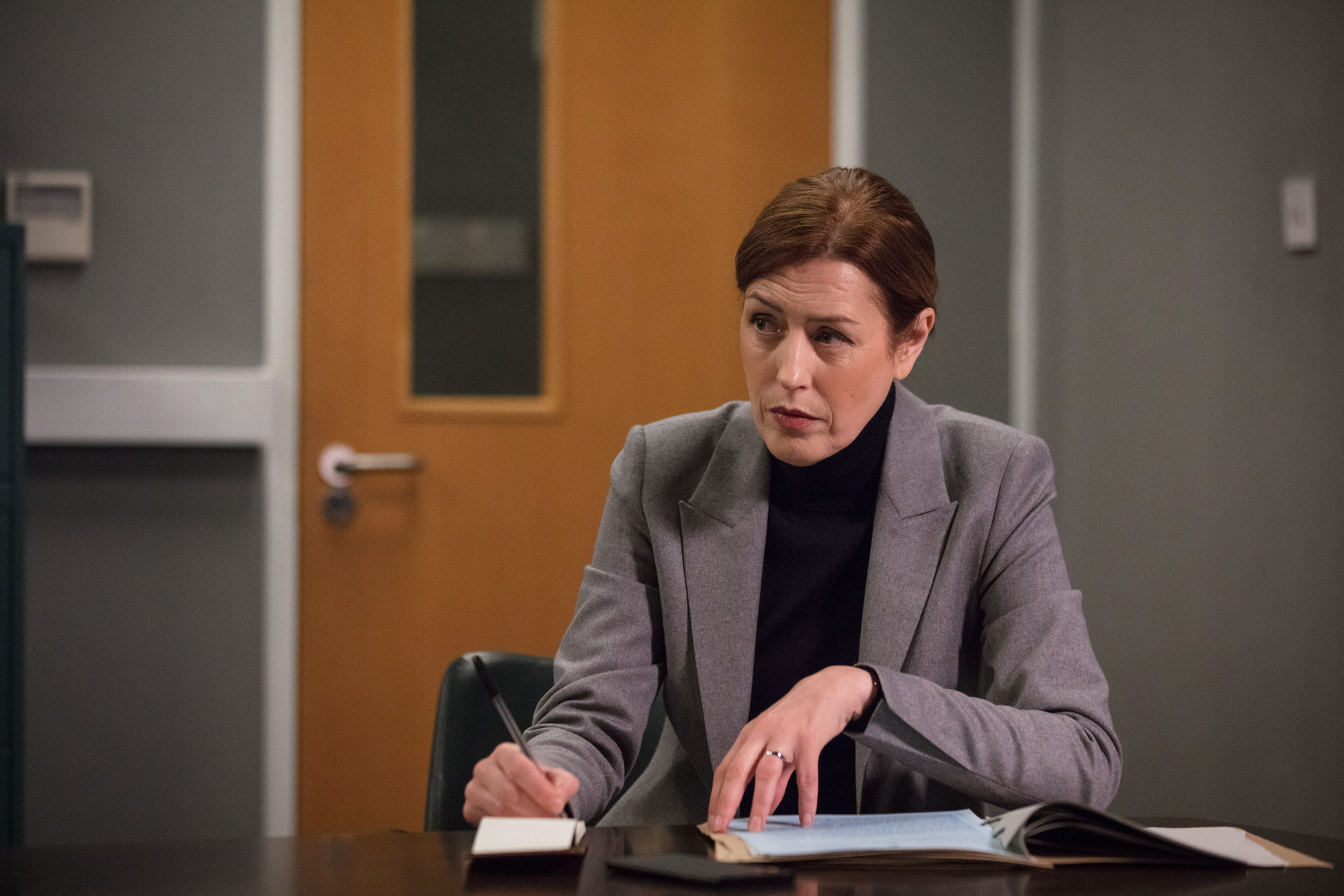Bodyguard: explaining the ending
Here are all the answers you need to Bodyguard’s many questions. Major finale spoilers ahead…
Warning: contains spoilers.
It’s over. Six weeks of appointment viewing ended with David Budd getting the bastards that did it, getting some much-needed psychological help, and getting his family back. Applause all round.
DCI Sharma was right though – the St Matthew’s bomb didn’t plant itself, ma’am. Nor did it build itself. If you missed a vital bit of explanation as to who did both in the finale, here are the answers to any questions you may have…
So, was Julia really dead?
As a dodo.
But really, really dead?
See above.
Who planted the bomb that killed Julia?
Luke Aitkens’ criminal associates/people they’d bribed or intimidated. Despite DCI Sharma not believing in coincidences, it was presumably a coincidence that the CCTV at St Matthews was wiped in the same way that ‘Richard Longcross’ wiped the CCTV footage of him visiting Julia’s hotel.
Who built the bomb that killed Julia?
Nadia Ali. Though she feigned being the oppressed wife of a Jihadist, forced into wearing a suicide vest, Nadia was apparently a terrorist mastermind. An engineer, she built the bomb she wore on the train, the one that killed police officers outside Heath Bank School, and the one that killed the home secretary. When Budd discovered her aboard that train, she lost her nerve and didn’t detonate the device, but, she says, has atoned for that by running the terror cell from prison and feeding false information to the investigation to slow their progress

.
Who planned the attack on Heath Bank School?
Nadia and the terror cell. She sought out David’s children’s school after he told her about them on the train in episode one, and from prison, planned an attack to further her terrorist cause and hurt the man who foiled the October the 1st attack.
Who leaked the home secretary’s itinerary for the Thornton Cross shooting?
Chief Superintendent Lorraine Craddock (Pippa Haywood). Budd’s boss Craddock had been in the pay of organised crime for years. Criminal mastermind Aitkens conspired with her to plan the Thornton Cross shooting and to plant the bomb that killed the home secretary. Craddock deliberately promoted David Budd to be the home secretary’s personal protection officer because his service links to Andy Apsted, whom Aitkens had recruited and armed for the Thornton Circus attack, would make David easy to frame as the inside man.
Why did Aitkens want the home secretary dead?
It’s good for business. Had it passed, Julia Montague’s RIPA-18 bill would have transferred power from the police to the Secret Service. The police are accessible and therefore more susceptible to bribery and intimidation than the harder-to-reach Secret Service. As Craddock explained, Aitkens needed policing to stay with an organisation he could control.

So, the Security Service weren’t trying to kill Julia?
No. The Security Service were broadly working with Julia. After her shock death, they urgently needed to retrieve the kompromat they had fed her because its existence incriminated them in the attempted coup against the current prime minister. That kind of thing is frowned upon in a democracy.
David being framed for Julia’s murder was good news to the security service, and to Mike Travis, because it would stop the investigation into it all. As Travis told Hunter-Dunn hopefully in the finale as they watched news footage of David walking through London in his suicide vest: “No wider conspiracy involved? Look no further for Julia’s assassin.”
What about Tahir Mahmood?
Tahir was just a pawn in all this. Minister for Counter Terrorism Mike Travis, chief whip Roger Penhaligon and special advisor to the home secretary Rob Macdonald all conspired to humiliate Julia politically, using Tahir as their unwitting patsy. Loyal to the PM, they wanted to stop Julia’s leadership bid in its tracks by publicly undermining her. The speech Rob wrote her to give at St Matthews, where her bid was due to begin in earnest, contained grievous factual errors, about which aide Tahir was only informed at the last minute. The idea was for Tahir to invade the stage to correct Julia mid-speech, creating a moment of public embarrassment destined to ‘go viral’ and derail her career. They didn’t know about the bomb.
What about David Budd?
He was trying to protect Julia, not kill her (apart from that one time he throttled her in his sleep, but leave that to one side).

Why did Budd meet that shadowy arms dealer in episode five?
It was a deliberate ploy to draw Luke Aitkens out. As lord of the manor, David knew that any criminal request for a weapon such as the rifle Andy Apsted had used to try to assassinate the home secretary would get Aitkens’ attention. It duly did, which led Aitkens to send Chanel out as a potential honey trap for David, getting David closer to Aitkens.
Who replaced David’s bullets with blanks?
That was Aitkens’ criminal associates, whose prints were discovered on the blanks cartridge. They knew he had a Makarov pistol, and, as David says, “they were trying to frame me, suppose they couldn’t take the chance of leaving me with live rounds.”
How did the kompromat go from David’s boiler to buried outside his flat?
The magic of TV. We didn’t see Budd set up the mace booby trap that caught Richard Longcross either, but he did. Can we suppose that David deliberately chose to bury the evidence there so that it would leave a rope hanging over the wall on which he could escape after removing the bomb vest? That would be pretty smart, but impossible seeing as he wouldn’t have known he was going to wake up wearing the suicide vest and therefore didn’t know he’d need an escape route outside his flat. Budd thought on his feet.
What about Vicky’s new boyfriend?
Mr Red Herring, you mean? Irrelevant.

Was Tom Fenton acting suspiciously just another red herring?
It looks that way.
And the same goes for Commander Anne Sampson?
Judging by the music dropping an ominous octave whenever she arrived on screen, we were certainly supposed to suspect Sampson—as Sharma did—of being the inside man, but that was just to throw us off Craddock’s scent.
And yet… remember her “cui bono” statement in episode five, asking who benefits from all this? Well, with RIPA-18 kicked into the long grass, Stephen Hunter-Dunn having resigned in disgrace, and the Security Service implicated in a scandalous attempted coup on the PM, Sampson has certainly benefitted. Is she playing a dangerous double game that could pay off in an eventual second series, or is she just really lucky? Not so lucky, though, that one of her senior officers wasn’t caught taking bungs from organised crime.
What happened to everyone in the end?
David sought counselling and drove off happily with Vicky and the kids. Chief Superintendent Craddock and Luke Aitkens were arrested and presumably imprisoned. The prime minister, with his history of drug, drink, sexual assault and financial scandal, resigned after the kompromat was leaked by Commander Anne Sampson, also resulting in the resignation of Sampson’s enemy Stephen Hunter-Dunn from the Secret Service, as the kompromat revealed his role in the attempted coup against the prime minister. Rob Macdonald was presumably fired for revealing the plan against Julia to the police. Mike Travis will stay in post long enough to make sure that RIPA-18 didn’t pass. And DCI Sharma and DS Rayburn hopefully went on to have a nice, relaxing spa weekend.
Read our spoiler-filled finale review here.
